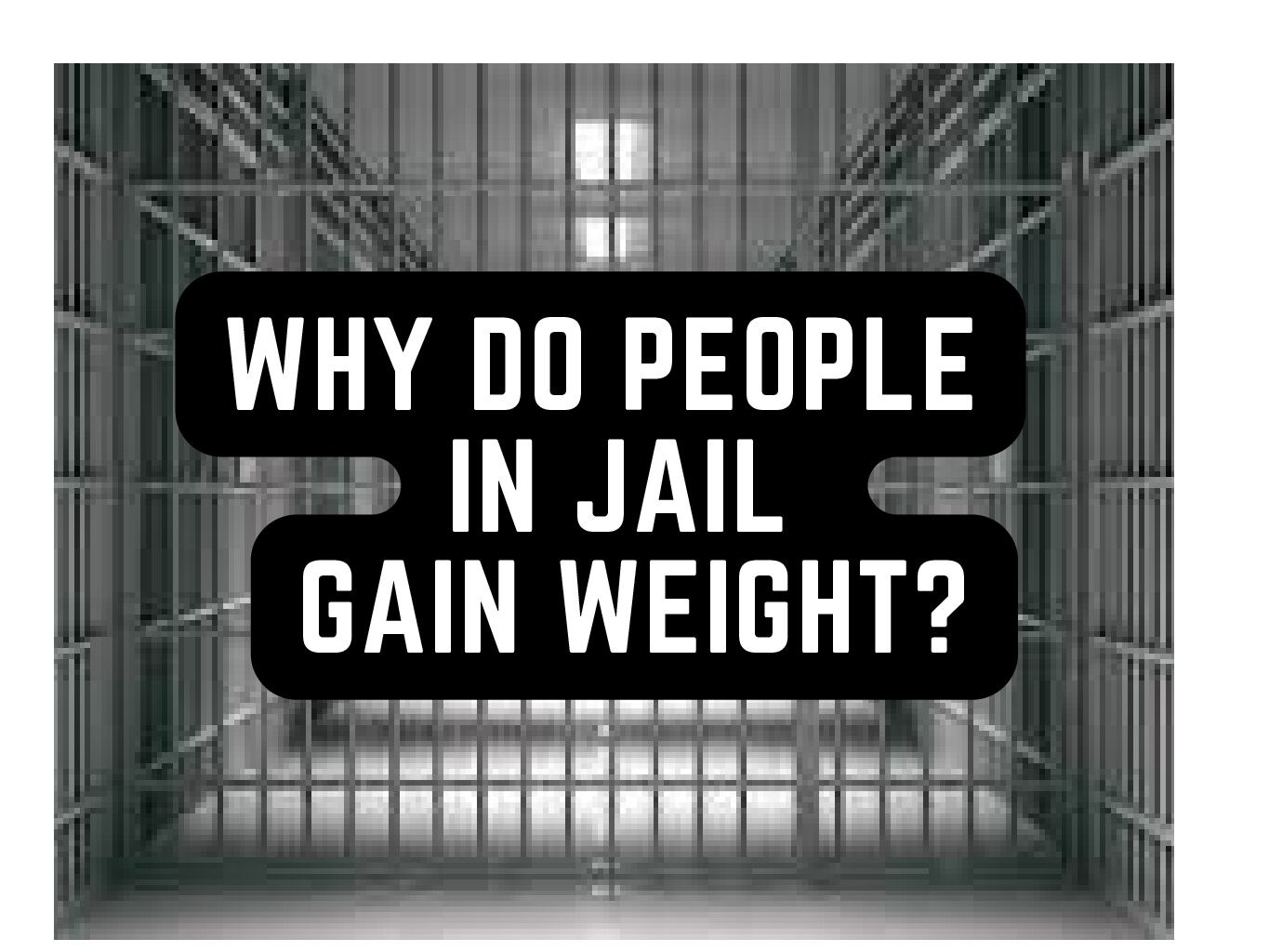WHY DO PEOPLE IN JAIL GAIN WEIGHT?
The other day while grocery shopping, I ran into a buddy of mine that I hadn’t seen in a few years. And while my normal inclination would be to avoid the possibility of any random awkward encounter or conversation by any means necessary, this one seemed to be inevitable.
Ugh… After going through the usual formalities, I said you look great man. It was a total lie though, because he looked like garbage. He was a fat, bloated mess, with a very bad way of not blinking or breaking away from eye contact, thus making things incredibly uncomfortable for the listener (me).
As he began to tell me his painful life story, he also happened to mention that he had been locked up for a good bit. Be that as it may, this got me to think… why do people in jail gain weight?
I mean, it is kind of an ironic thing seeing as how he had all the time in the world to exercise, so you would think he’d come out looking like Mr. Universe.
Why do people in jail gain weight?
More often than not, the two most significant reasons in the fluctuation of weight for an incarcerated individual would be the food served in jail, which is generally not of high-quality nutritional value, along with a lack of physical activity that will result with an inmate gaining weight.
Therein, there are other contributing factors that affect each and every prisoner differently, with five main components to it:
1) NOT ENOUGH EXERCISE
Aside from the weight gain, not getting enough physical activity can lead to heart disease—even for people who have no other risk factors. It can also increase the likelihood of developing other heart disease risk factors, including obesity, high blood pressure, high blood cholesterol, and type 2 diabetes.

Thinking that the opportunity for physical exercise is limited since one is incarcerated is an excuse, as many others in the same predicament are able to build the body (and mind) up considerably.
The ideology is they cannot burn calories like they can when they are on the outside, yet many other individuals are able to transform their physique with limited resources. Bear in mind, it is not about resources (weights, fancy equipment, trainers), but about resourcefulness. Ultimately, the body stores excess energy as either fat or muscle.
A sedentary body will store more energy as fat than an active body would, jail or not.
2) FOOD WITH LITTLE TO NO NUTRITIONAL VALUE
The food in jail and prison is designed to have a long shelf life and thus, chocked full of preservatives. There’s a very high sodium content which causes bloat and water retention, and more often than not, it’s carb-heavy and ultra-processed.

It’s also frequently rotten, moldy, or vermin infested. And if that wasn’t enough, there’s rarely enough of the food to appropriately nourish the body.
Some people, in particular, do not respond very well to a “prison diet”, and obviously when you couple that with a lack of physical activity, there are dire consequences.
3) STRESS

Jail is stressful. Due to this environment, Cortisol is produced in abundance and that stimulates your fat and carbohydrate metabolism, creating a surge of energy in your body.
While this process is essential for survival situations such as jail or prison, it also increases your appetite. Additionally, elevated cortisol levels can cause cravings for sweet, fatty and salty foods (commissary anyone).
Also, to be noted, biology research conducted at Stanford University recently found that weight gain occurred in individuals that had nothing to do with eating, as chronic stress may pump up the rate in which new fat cells are formed.
4) COMMISSARY

The commissary’s main purpose is to make money for the jail and/or prison, and not on the individual’s health.
They sell inmates all manner of junk food at inflated prices to turn a profit. On top of that, the food that inmates are able to order is low quality as well.
Something along the lines of Cheetos, ramen, honey buns, and so forth. Peanut butter, tuna fish, and whey protein are often available to order, but many inmates cannot afford those luxuries.
In prison, you will most likely have a job, but sadly, 17 cents an hour is not very much, and doesn’t get you very far even if you do not have bills to pay.
Medicine-related weight gain is a normal thing, especially with certain types of prescribed medications. For example, many steroids can cause weight gain. So can medicines that are used to treat mental health problems, such as depression and schizophrenia, all of which are very common in jails and prisons.
- Some medicines have a tendency to stimulate your appetite. This causes you to eat more and gain extra weight.
- Some medicines may affect your body’s metabolism. In turn, this causes your body to burn calories at a slower rate.
- Some medicines might cause you to retain water. This makes you weigh more even if you don’t put on extra fat.
- Finally, other medicines might affect how your body stores and absorbs sugars and other nutrients.
As well, if a medicine causes you to be tired or have shortness of breath, you may be less likely to exercise, and this can cause you to gain weight.
Conclusion
It’s not uncommon for people to end up with diabetes or similar issues if they’re incarcerated for a long period of time if they do not choose to be active. Unfortunately, inmates are typically not the most educated, either.
Many of them do not understand the harm they are doing to their body until it’s already been done. At the very least, one must find a way to get regular physical activity when not having the opportunity to consume food of higher quality.
The normal rationale is that because someone is incarcerated, they must be limited by their options and lack any freedom or control to do anything. However, there are choices that are applicable to those incarcerated, that parallel similar to those that roam the free world – and that is to be mindful of your health. It is a conscious choice.
–The Educated Felon








2 Comments